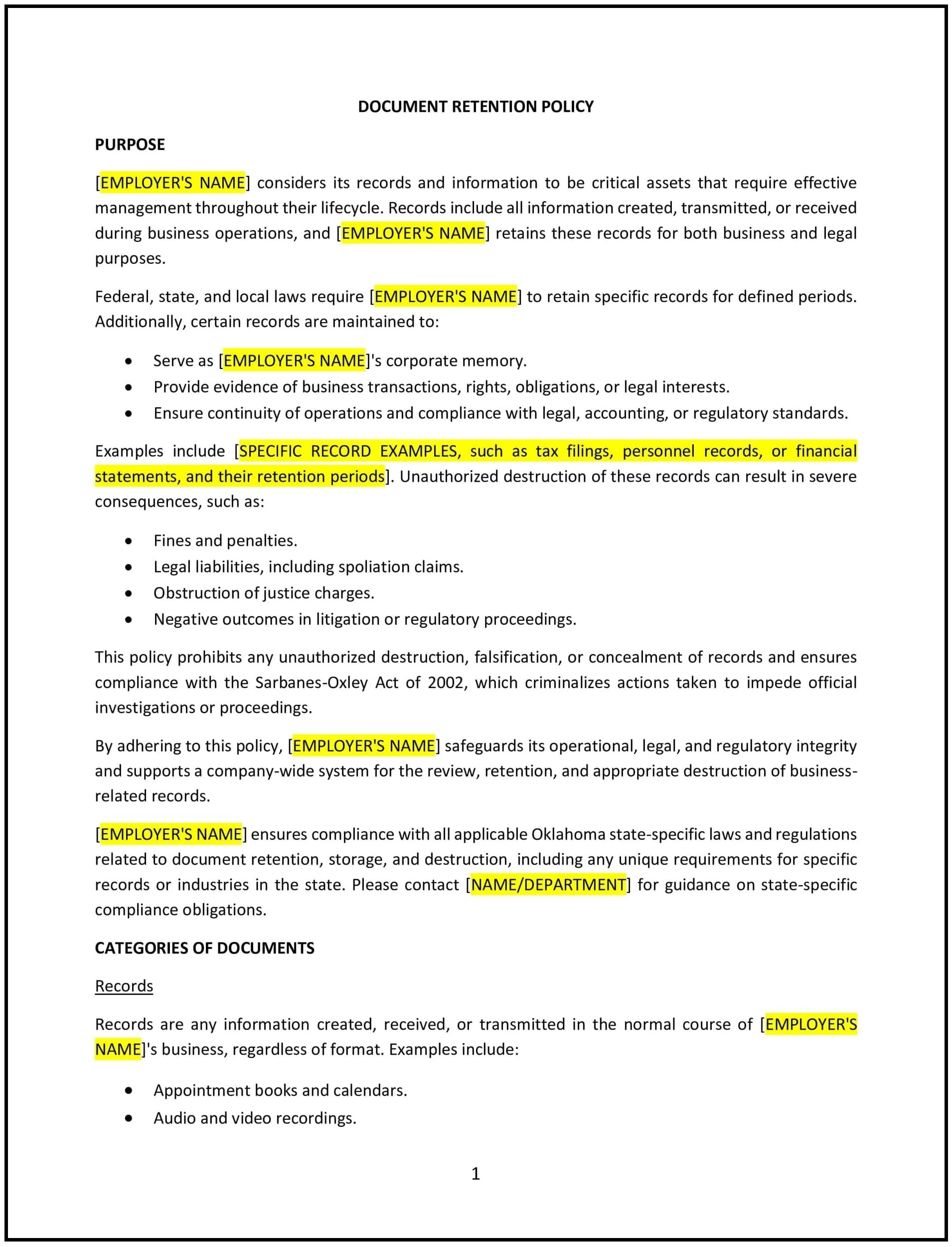Document retention policy (Oklahoma): Free template
Got contracts to review? While you're here for policies, let Cobrief make contract review effortless—start your free review now.

Customize this template for free
Document retention policy (Oklahoma)
This document retention policy is designed to help Oklahoma businesses establish clear guidelines for storing, managing, and disposing of business records. The policy outlines retention periods, secure storage procedures, and compliance considerations to ensure proper record-keeping and reduce legal risks.
By implementing this policy, businesses can maintain accurate records, improve operational efficiency, and support compliance with industry regulations.
How to use this document retention policy (Oklahoma)
- Define document categories: Classify records based on type, such as financial documents, employee records, contracts, and tax filings.
- Establish retention periods: Specify how long different types of records must be retained based on business needs and legal requirements.
- Implement secure storage procedures: Outline how documents should be stored, whether in digital formats, physical files, or cloud-based systems.
- Set disposal guidelines: Define the process for securely destroying documents that have reached the end of their retention period.
- Assign responsibility: Designate individuals or departments responsible for document management and compliance oversight.
- Ensure accessibility: Maintain proper indexing and retrieval systems for easy access to critical business records.
- Review regularly: Periodically assess the policy to reflect changes in record-keeping best practices and Oklahoma-specific regulations.
Benefits of using this document retention policy (Oklahoma)
Implementing this policy provides several advantages for Oklahoma businesses:
- Improves record management: Ensures efficient organization and access to important documents.
- Reduces legal risks: Helps businesses maintain required records and dispose of outdated information securely.
- Enhances operational efficiency: Prevents unnecessary data storage costs and streamlines document retrieval.
- Protects confidential information: Establishes secure handling and destruction processes for sensitive records.
- Reflects Oklahoma-specific business considerations: Aligns with local industry practices and regulatory requirements.
Tips for using this document retention policy (Oklahoma)
- Train employees: Ensure staff understands the importance of proper document retention and disposal.
- Use secure storage methods: Implement encryption, password protection, and locked cabinets for sensitive records.
- Automate retention tracking: Use document management systems to monitor retention timelines.
- Conduct periodic audits: Review stored records to ensure compliance and identify outdated documents for disposal.
- Update policies as needed: Adjust retention schedules based on changing business needs and regulatory updates.